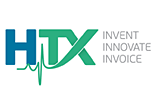Innovation
HTX announces recipients of REACH funding
January 6, 2016
 TORONTO – Five successful project teams will form the first cohort receiving funding through HTX-REACH. The REACH Innovation Procurement Funding Program is a 3.5-year initiative seeking to demonstrate new ways to evaluate, procure and adopt beneficial medical technologies that address high-priority health system problems.
TORONTO – Five successful project teams will form the first cohort receiving funding through HTX-REACH. The REACH Innovation Procurement Funding Program is a 3.5-year initiative seeking to demonstrate new ways to evaluate, procure and adopt beneficial medical technologies that address high-priority health system problems.
REACH will provide 50% matching grant funds, ranging from $300,000 to $600,000 with some exceptions of up to $1,000,000 to 10-12 competitively-selected projects. Projects must be led by publicly funded healthcare delivery organizations.
By working directly with public healthcare delivery organizations and identifying the gaps and current needs of the system, REACH will foster a “pull” model of technology development through innovation procurement.
Summary of Call 1 Projects:
1. Utilizing Smart Solutions to Prevent Privacy Breaches: From Logging and Auditing to Smart Detection
- Project team lead: Mackenzie Health
- Mackenzie Health will be utilizing an innovative procurement pathway to identify and procure a solution to meet institutional privacy breach needs in healthcare.
2. Promoting Mental Health and Participation in Life Activities Through Neurofunction
- Project team lead: Canadian Mental Health Association Waterloo Wellington Dufferin
- Medical Technology Participant: BrainFx Inc.
3. Hospital Acquired Infections: An Improved Sterile Catheter Lock Solution
- Project team lead: Southlake Regional Health Centre
- Medical Technology Participant: SterileCare Inc.
4. FIRST Study: ‘Field Implementation of the autoRIC Device in STEMI (ST-segment Acute Myocardial Infarction)’
- Project team lead: William Osler Health System
- Medical Technology Participant: CellAegis Devices Inc.
5. ADOPT Study – Access in Dialysis for Better Outcomes in Patient Therapy
- Project team lead: William Osler Health System
- Medical Technology Participant: AngioDynamics
About HTX – The Health Technology Exchange
From Invention through Innovation to International Invoice, HTX provides non-dilutive project financing to emerging and established Ontario-based companies to develop, produce and commercialize innovative market-leading advanced health technologies. Through its Health Technology Commercialization Program (HTCP), its new REACH Innovation Procurement program, and its MedTech ecosystem support activities, HTX is the leading resource and catalyst for accelerating the growth of Ontario’s MedTech industry. HTX is managing funding on behalf of the Ontario Ministries of Research and Innovation, and Government and Consumer Services, and is a member of the Canadian Venture Capital Association. “REACH” (Resources for Evaluating, Adopting and Capitalizing on Innovative Healthcare Technology) is a new matching grant funding program managed by HTX, with support from the Government of Ontario. REACH is a 3.5-year program targeting late pre-market, early post-market, pre-diffusion technologies where procurement and local evidence are challenges. REACH will provide 50% matching grant funds to competitively-selected projects. Projects must be led by public healthcare delivery organizations (the “Lead Applicants”). The goal of REACH is to help Ontario public healthcare delivery organizations use new ways to evaluate, procure and more rapidly adopt beneficial medical technologies addressing high-priority health system problems.
As shown pictorially, traditional innovation support in the form of funding, mentoring and product development support is heavily geared towards early stage technology development and early evidence generation. But crossing the infamous “1st valley of death” does not always equate to a successful trajectory to commercialization, adoption and ultimate diffusion. REACH funding will uniquely target later stage technologies that have either received or are at the cusp of receiving regulatory licensing or registration in Canada. REACH funding will facilitate innovative local and/or foreign medtech companies to enter Ontario healthcare settings, generate the right type of evidence that supports reimbursement activities and ultimately lead to local procurement.
